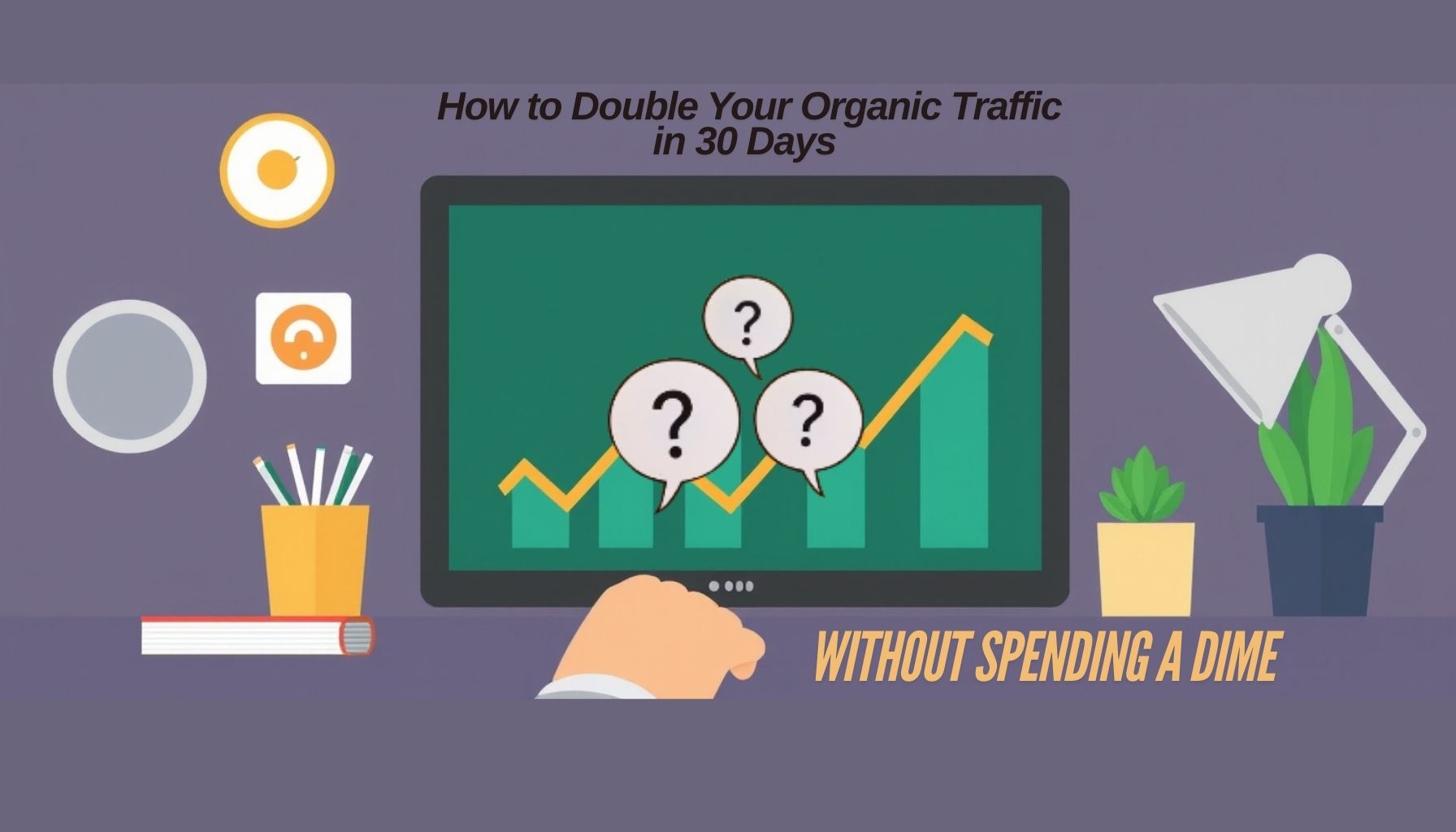Don’t let your competitors steal your stage. Learn how to boost your website’s organic traffic by 100% in just a month, completely free.
First things first, what does “organic traffic” even mean? It’s like people stumbling upon your website by accident. They find you through search engines, not because they clicked on an ad.
To make this happen, you need to optimize your website, which is like making it more attractive and easier to find for search engines. This is called Search Engine Optimization, or SEO for short.
Why is Organic Traffic Important?
Organic traffic is crucial for several reasons:
- It’s Free: Unlike paid advertising, organic traffic doesn’t require ongoing costs.
- It’s Targeted: People who find your website through organic search are likely interested in what you offer.
- It Builds Credibility: Ranking high in search results suggests your website is authoritative and trustworthy.
- It’s Long-Lasting: Organic traffic can continue to benefit your website even after you stop actively promoting it.
Strategies to Double Your Organic Traffic
Here are some proven strategies to help you increase your organic traffic in 30 days:
1. Keyword Research
- Identify Relevant Keywords: Use tools like Google Keyword Planner or SEMrush to find keywords that your target audience is searching for.
- Target Long-Tail Keywords: These are more specific keywords that have lower competition but can still drive targeted traffic.
- Analyze Competitors: See what keywords your competitors are ranking for and try to outrank them.
2. On-Page SEO
- Optimize Title Tags and Meta Descriptions: These are the snippets that appear in search results. Make them compelling and include your target keywords.
- Improve Headings and Subheadings: Use a clear and logical hierarchy of headings (H1, H2, etc.) to structure your content.
- Optimize Images: Use descriptive file names and alt text for your images.
- Write High-Quality Content: Create informative, engaging, and valuable content that your audience will want to share.
3. Technical SEO
- Ensure Mobile-Friendliness: Google prioritizes mobile-friendly websites in search results.
- Improve Website Speed: Slow loading times can deter visitors. Use tools like Google PageSpeed Insights to identify and fix performance issues.
- Create an XML Sitemap: This helps search engines understand the structure of your website.
- Submit Your Website to Search Engines: Use Google Search Console and Bing Webmaster Tools to submit your website and monitor its performance.
4. Link Building
- Earn High-Quality Backlinks: These are links from other websites pointing to yours. Focus on getting backlinks from reputable sources.
- Guest Posting: Write articles for other websites in your niche and include links to your own website.
- Broken Link Building: Find broken links on other websites and offer to replace them with links to your relevant content.
5. Local SEO (If Applicable)
- Claim Your Google My Business Listing: Provide accurate and up-to-date information about your business.
- Encourage Reviews: Positive reviews can improve your local search rankings.
- Optimize for Local Keywords: Include your city or town name in your content and meta tags.
6. Content Marketing
- Create a Content Calendar: Plan your content topics and publication schedule.
- Promote Your Content: Share your content on social media and other relevant platforms.
- Monitor Analytics: Track your website’s performance and make adjustments as needed.
Remember, organic traffic takes time to build. Be patient and consistent with your efforts. By following these strategies and continuously improving your website, you can significantly increase your organic traffic and attract more targeted visitors.
Additional Tips:
- Stay Updated with SEO Trends: Search engine algorithms change regularly. Stay informed about the latest best practices.
- Use Social Media: Promote your content on social media platforms to increase visibility.
- Build Relationships: Network with other bloggers and industry experts to build relationships and earn backlinks.
- Track Your Progress: Use tools like Google Analytics to monitor your website’s traffic and identify areas for improvement.
By implementing these strategies and staying focused on your goals, you can achieve significant growth in your organic traffic and take your website to the next level.





